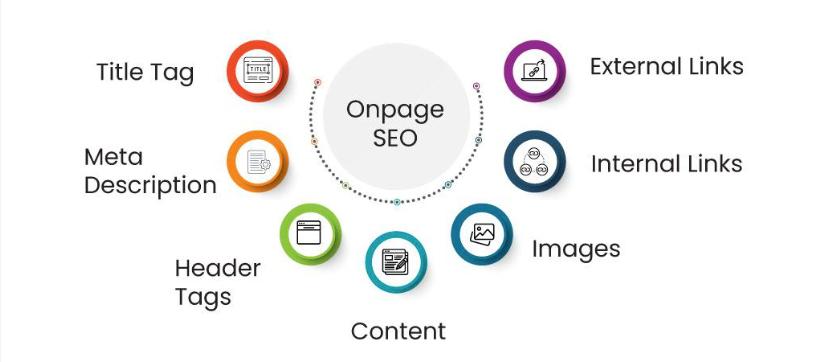How Website Performance / Speed Impact Website SEO Success.
In today’s digital age, where users expect instant access to information and seamless browsing experiences, website speed has emerged as a critical factor not only for user satisfaction but also for search engine optimization (SEO) performance. The speed at which a website loads and functions can significantly influence its visibility, rankings, and overall success in the competitive online landscape. In this article, we will delve into the intricate relationship between website speed and SEO performance, exploring the various ways in which sluggish loading times can undermine a website’s search engine rankings and user engagement.

Understanding the Significance of Website Speed
Before delving into the effects of website speed on SEO performance, it’s essential to grasp why speed matters in the first place. In today’s fast-paced digital environment, users have increasingly shorter attention spans and high expectations for website performance. Studies have shown that users are likely to abandon a website if it takes more than a few seconds to load, leading to increased bounce rates and decreased engagement.
Moreover, website speed is a crucial factor in determining user experience and satisfaction. Slow-loading websites frustrate users, leading to negative perceptions of the brand and a higher likelihood of them seeking alternative sources for information or products. On the other hand, fast-loading websites are more likely to retain users, encourage exploration, and drive conversions.
The Impact of Website Speed on SEO Performance
Website speed is not only essential for user experience but also directly influences a website’s search engine rankings and visibility. Search engines, such as Google, consider website speed as one of the ranking factors in their algorithms. Faster-loading websites are more likely to rank higher in search engine results pages (SERPs) compared to slower counterparts. Here’s how website speed impacts SEO performance:
Crawlability and Indexability: Search engine crawlers regularly visit websites to discover and index their content. However, if a website has slow loading times, crawlers may struggle to crawl and index all pages efficiently. As a result, important content may go unnoticed by search engines, leading to lower visibility in search results.
Bounce Rate and Dwell Time: Website speed directly affects user behavior, particularly bounce rate and dwell time. A high bounce rate, indicating that users leave a website shortly after visiting a single page, sends negative signals to search engines, suggesting that the content may not be relevant or engaging. Similarly, longer loading times can lead to shorter dwell times, as users are more likely to abandon a website if it takes too long to load. Search engines interpret these signals as indicators of poor user experience, potentially impacting rankings.
Mobile Friendliness: With the increasing use of mobile devices for internet browsing, mobile optimization has become crucial for SEO success. Mobile users expect fast-loading websites that are optimized for their devices. Slow-loading mobile websites not only frustrate users but also lead to lower rankings in mobile search results, as Google prioritizes mobile-friendly websites in its mobile search algorithm.
The Impact of Website Speed on SEO Performance
User Experience Signals: Search engines place a significant emphasis on user experience signals when determining rankings. Website speed is a fundamental aspect of user experience, and search engines take into account metrics such as page load time, time to first byte (TTFB), and rendering speed. Websites that provide fast and seamless user experiences are more likely to rank higher in search results.
Competitive Advantage: In a competitive online landscape, every advantage counts. Websites that prioritize speed and performance gain a competitive edge over slower competitors. Fast-loading websites are more likely to attract and retain users, leading to higher engagement, conversions, and ultimately, improved SEO performance.
Optimizing Website Speed for SEO Success
Given the critical role of website speed in SEO performance, it’s imperative for website owners and webmasters to prioritize optimization efforts. Here are some strategies for optimizing website speed:
- Optimize Images: Large, unoptimized images are a common culprit for slow-loading websites. Compressing images, using the appropriate file formats, and implementing lazy loading techniques can significantly reduce page load times without compromising image quality.
- Minimize HTTP Requests: Each element on a web page, such as images, scripts, and stylesheets, requires an HTTP request to load. Minimizing the number of HTTP requests by combining and minifying files, leveraging browser caching, and utilizing content delivery networks (CDNs) can speed up page load times.
- Enable Browser Caching: Browser caching allows browsers to store static resources, such as images, CSS files, and JavaScript, locally on a user’s device. By enabling browser caching, websites can reduce server load and speed up subsequent page loads for returning visitors.
- Optimize Code and Scripts: Bloated or inefficient code can slow down website performance. Optimizing code, removing unnecessary scripts, and deferring non-critical JavaScript can improve loading times and overall site speed.
- Use a Fast Web Hosting Provider: The choice of web hosting provider can have a significant impact on website speed. Opting for a reputable hosting provider that offers fast servers, solid-state drives (SSDs), and scalable resources can ensure optimal performance for your website. Impact Website SEO
- Monitor and Test Performance: Regularly monitoring and testing website performance using tools like Google PageSpeed Insights, GTmetrix, or Pingdom can help identify areas for improvement and track progress over time. Continuous optimization is key to maintaining fast-loading website speed.
Conclusion
In conclusion, website speed plays a crucial role in determining a website’s SEO performance and overall success in the digital realm. Slow-loading websites not only frustrate users but also suffer from lower search engine rankings, decreased visibility, and reduced engagement. By prioritizing website speed optimization efforts and implementing best practices, website owners can enhance user experience, improve search engine rankings, and gain a competitive edge in the online landscape. In an era where speed is paramount, the need for fast-loading websites has never been more critical for SEO success.
How to Use Social Media Advertising to Boost Your Business

Add a Comment